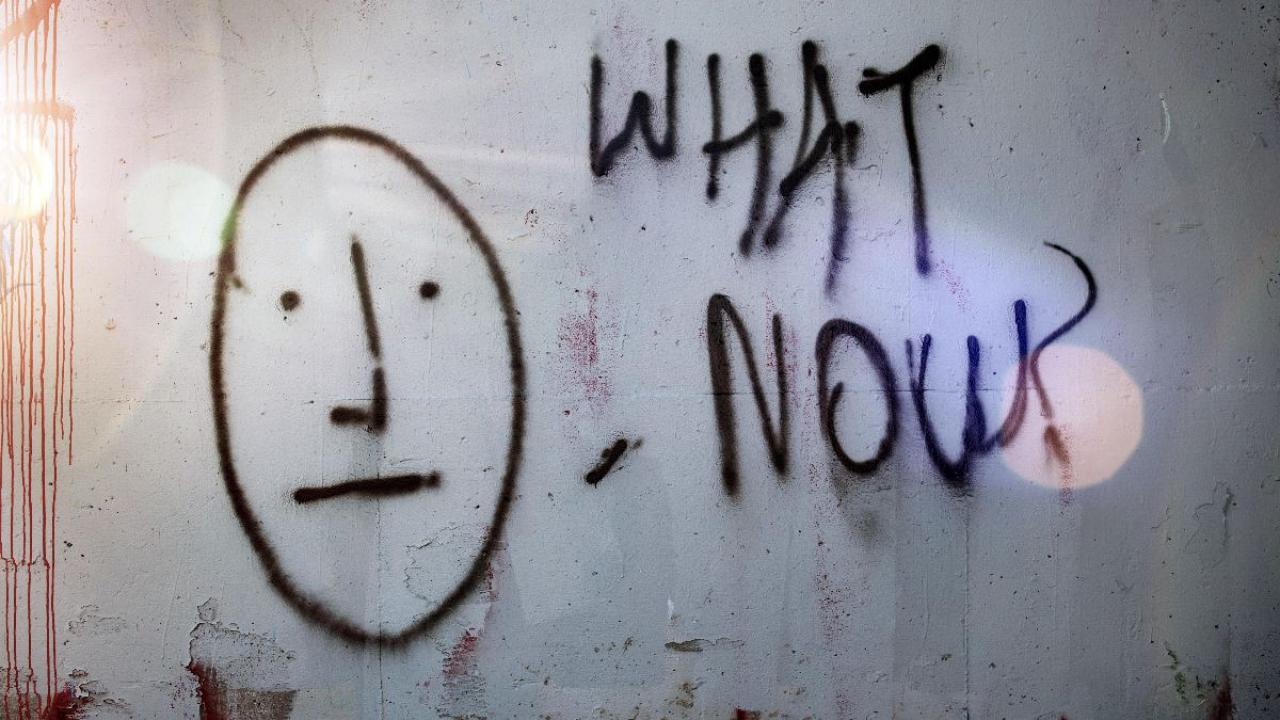
An Ideal, an Experiment, a Site of Struggle
At recent DHI Conversation events, scholars discussed the global decline of democracy and the fights to keep its promises alive.
Donald Trump’s presidency has intensified the threats to democracy that already existed in the United States and around the world. But now that Joe Biden has prevented Trump’s reelection, what will a Biden presidency mean for the ongoing global crisis in democracy and for the social movements fighting in democracy’s name?
In the leadup to the election, scholars at two Conversation events presented by the UC Davis Humanities Institute shared historical and theoretical approaches for thinking through this question and more. Democracy in Crisis, Democracy in Movement(s) included “Democratic Movements in Times of Crisis” with Michael Hardt (Professor of Literature at Duke University), as well as “Democracy in Crisis?” with Wendy Brown (Class of 1936 First Chair and Professor of Political Science at UC Berkeley) and James Vernon (Helen Fawcett Distinguished Professor of History at UC Berkeley). The series had kicked off with “Women, Voting, and US Empire,” which you can watch and read about here.
We the People?
Though they approached the topic differently, each of the scholars defined democracy as a site of struggle oriented toward the idea that ordinary people can collectively govern themselves.
Important to this idea, Vernon added, is the fact that its radical potential has always been limited by violence and exclusions based on race, gender, and class. “Arguably, in most parts of the world, most of the time, democratic processes have developed to constrain and limit the radical potential of governing by and for We the People,” Vernon said.
Brown argued that democracy’s decline around the world is tied to the global rise of racialized neoliberal capitalism. “In the past four decades, states around the world have been less and less oriented by and legitimated by social provisioning and social security for their populations, and increasingly oriented by and legitimated by capital and wealth accumulation,” she explained.
In the United States, she added, this process of neoliberalization has been intensified by the Republican Party’s strategy since the 1980s. The GOP’s projects of building plutocracy and securing power in the face of a shrinking base, Brown said, have required “dismantling democracy at every level, from pillorying education and disdaining intellectuals to jamming the judiciary with business-friendly judges.” Brown added that the Democratic Party has been complicit in this process as well, citing the neoliberal policies of the Clinton and Obama administrations.
While it has been easy to be distracted by Trump’s “strongman tactics,” Brown said, it is crucial to recognize his presidency as part of this process, which preceded and will outlast him. “Once markets and traditional morality are valorized and the state repurposed to support them, [citizens’] investment in democracy goes by the wayside,” Brown said.
"You don't have hope. You make hope."
Given these circumstances, can the promise of democracy survive? The speakers at both events agreed that hope for preserving democracy exists in the form of social movements, especially in the powerful and widespread movements of the last decade: the Occupy movement, Black Lives Matter, youth-led movements for climate justice, and more.
Hardt’s work with Antonio Negri has discussed how the movements offer forms of resistance to global systems of domination. In conversation with DHI Associate Director Katharine Wallerstein, Hardt explored the relationship between ideals of democratic social movements, their internal relations, and their impact on national and global structures.
While he described how many on the Left believe that democracy is “unsalvageable” on a global scale, Hardt emphasized that “there is a legacy of struggles for liberation for which democracy is the key term.” For that reason, he said, “It seems to me a concept worth struggling over.”
Social movements are important locations where this struggle takes place, Hart argued. While he allowed that movements like Occupy have been justly criticized for their internal failures, he proposed that movements should be understood as “terrain[s] of experimentation” in the struggle to enact democracy, not as utopian miniatures of what society should look like.
Asked about the effect a Biden presidency might have on the current movements, Hardt suggested that “one might view a choice [between Donald Trump or Joe Biden] in terms of selecting a better enemy. The great advantage we have of Biden winning is that he’s a much better enemy to have.” Hardt added that he hopes a Biden presidency will mean “a much more rich political context in which to struggle.”
Brown also addressed the question of hope for the future. “You don’t have hope. You make hope,” she said. “We have to be careful that we don’t just go chasing hope to make ourselves feel more hopeful,” Brown cautioned, “but instead, start the hard work of figuring out what the Left visions are for the 21st century.”
